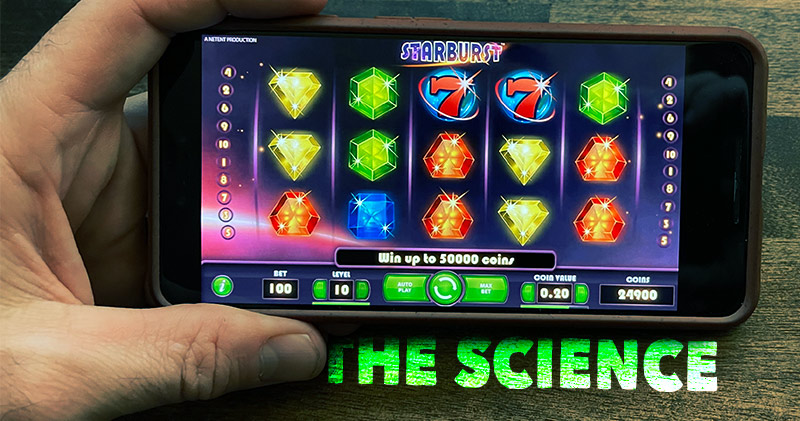The Basic Science of Online Casino Games
As online gaming has grown in popularity, an important subsection of this market, online casino, has mirrored these trends and has grown leaps and bounds in the last few years, Driven predominantly by advances in technology, developers have also taken advantage of changing player habits too offer on the go gaming, accessible all day, every day from the comfort of the players own home. Technology has become more affordable, and the advent of the smartphone, allowing for internet connectivity of the go has allowed for mobile casino gaming to grow.
Players have the ability to access the online casinos, and developers are able to optimize their offerings to the mobile market, as well as using technology to make game play fresh and exciting, as well as attract and engage players. The current online market is estimated to be worth upwards of US$60 billion worldwide and is expected to reach in excess of US$90 billion by 2023.
The most popular games in an online casino have been recreated faithfully thanks to skilled utilization of scientific methods and psychology. But how have they done this exactly?

Slots
Online slots are perhaps the most popular online casinos game of all. They are quick, fun and engaging. Simple to play, there are no rules to learn and a complete novice can play almost immediately. However, this simplicity belies the complex technology behind it. In order to make it fun and exciting, and to offer so many different themes, lines and reels, developers have to work hard to deliver true randomness and appealing visuals and sounds.
Random number generator
The Random Number Generator (RNG) is critical for fair gaming
. The RGN uses an algorithm created by a computer that generates a sequence of numbers that link to a specific symbol on the reel and cannot be worked out or reproduced. The RGN weights different symbols differently, so lower symbols are more heavily weighted meaning players are more likely to get lower symbols with smaller wins. All reputable casinos get their RGNs verified independently on a regular basis to ensure fairness, and so their players know they are being treated fairly.
Return to Player Value
The Return to Player Value (RTP) is a mathematical statistic that shows how much, theoretically, the game will pay out. Expressed as a percentage, the higher the number the better for the player. For example, a game at 97.2% RTP will pay out US$97.2 for every US$100 paid in. This however does not specify over what time period the game will pay out, as this will link to the RGN.
Psychology
Although slots are a game of pure chance, there is still an element of psychology behind it to keep players betting. Many studies have been completed around human behavior, conditioning and gratification, showing that there are many tricks that casinos use to keep people at the slot machine, be it in a land casino or online.
Music: this plays an important part, as it needs to be engaging but also appealing to greatest number of people to keep them playing. High energy music helps keep players pressing the button, chasing the high of winning. There are also shifts from major to minor keys to increase the anticipation, and there is usually a fun sound that signifies the player has won.
Button: although the player actually has no control over what happens, giving them the power to press the button on the screen keeps them engaged and means they are involved and more likely to keep going.
Near misses: these encourage ongoing play as players want to rectify this.
Low bets: when wagers are mere pennies, players don’t think twice about playing another bet, and this soon adds up and is a valuable source of income for casinos.
Other games also use a similar scientific basis to be successful, including roulette, which uses the RGN when spinning the roulette wheel to ensure fairness, as well as other mathematical formulae to calculate odds. The flashing lights and sounds help to engage players and keep them coming back.

Poker
Whilst there is a variation on the RGN to ensure that when the cards are dealt it is as if they have been fully shuffled and dealt out randomly, much of the science behind poker, a game of skill, is around the psychology of the game.
- Player self-knowledge: Players must understand their own motivation and control their emotions. Players who are not natural risk takers will play differently to those who are more daring.
- Confidence, not ego: Although online, how they bet, and the size of bets can demonstrate how confident someone is.
- Focus: Keeping a strong focus of knowing how previous games have played out, how people bet and remember (roughly) what cards have been before.
- Avoiding ‘tilt’: This is frustration at a run of bad hands/difficult opponents/bad luck, and can lead to rash decisions and mistakes. Players should refer back to focus and emotional resilience to keep this in check.
- Trust the odds: The maths does not lie. Players should use this to their advantage to ensure they maximize their chances of winning.
There is a great deal of science and technology behind the successes of online casinos, ensuring fairness and engagement. Online casinos will use anything they can to engage and retain players, and will continue to use technology are is develops to bring more excitement to their offerings.
































































































